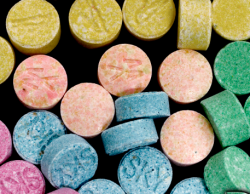Dangers of Hallucinogenic Drugs
Hallucinogenic drugs can have many dangerous effects for which users are often not prepared. Because these drugs highly affect the brain and the body, many dangerous incidents and conditions can occur as a result of abusing them. Here are some of the most dangerous aspects of hallucinogenic drugs.
Addiction
Some hallucinogenic drugs are addictive. While LSD “is not considered an addictive drug since it does not produce compulsive drug-seeking behavior” after long-time use, according to the NIDA, “PCP is addictive.” Because of this, the drug can cause:
- Cravings
- Compulsive drug-seeking behavior
- Dependence
- Withdrawal symptoms
- Life, work, school, relationship, and legal problems
- An inability to stop taking the drug
When someone begins to abuse drugs recreationally, they are usually in control of their decisions to take the drug. But over time, PCP abuse makes a person unable to stop taking the drug so that they continually abuse it, no matter what the consequences. Addiction is dangerous, and it can become impossible to stop without help, after which the individual may still be vulnerable to relapse.
Hallucinations and Behavior
One of the most dangerous effects of any hallucinogenic drug is the behavior it can cause. The NIDA states, “While intoxicated, PCP abusers may become violent or suicidal and are therefore dangerous to themselves and others.”

Hallucinogenic drugs can cause a lack of control.
Hallucinations are a common effect of these drugs and are often the main reason behind a person’s desire to take them. These hallucinations can be dangerous though, and with drugs like psilocybin or other hallucinogens, “a lack of control over thinking processes and concentration” may result (NSW). A person may get behind the wheel of a car when intoxicated, thinking they are fine, and seriously hurt themselves or someone else. Or they may see a hallucination which scares them and do something dangerous to try and get away.
The behavior that individuals exhibit while on hallucinogenic drugs is extremely dangerous.
Physical Dangers
Hallucinogenic drugs also put individuals in physical danger as well, although it does not lead to death as often as the behavioral issues. Certain hallucinogens have different physical effects on the body, many of which can be highly dangerous.
- LSD
- Dizziness
- Raised body temperature
- Nausea
- Blurry vision
- Tremors
- Palpitations
- Peyote
- Raised body temperature
- Increased heart rate
- Uncoordinated movements
- Psilocybin
- Nausea
- Vomiting
- Drowsiness
- Muscle relaxation
- PCP
- Increased breathing rate
- Numbness in extremities
- Loss of muscular coordination
- Coma
- Seizures
Long-Term Effects
The effects of hallucinogens can become even more hazardous when someone abuses them in the long-term. People have commonly experienced flashbacks which can be extremely dangerous and can occur years after the drug abuse stops. Memory and concentration can become impaired which can be dangerous for the individual as well, and stress, panic, and depression are all issues that former hallucinogen abusers deal with more often and with less success.
Hallucinogens can cause dangerous effects, not only in someone intoxicated, but in someone who continues to abuse the drug in the long-term, strengthening the possibility of flashbacks, concentration issues, and memory problems. And, if someone is intoxicated and violent, it can be dangerous for them as well as anyone around.
- Related Articles
 Short Term Effects of Hallucinogens -
On a short term basis, hallucinogenic drugs can cause a variety of psychological and physical effects.
Short Term Effects of Hallucinogens -
On a short term basis, hallucinogenic drugs can cause a variety of psychological and physical effects.  How Can I Avoid a Bad Trip? -
Your environment and the people you're with play a big part in the experience you'll have on hallucinogens.
How Can I Avoid a Bad Trip? -
Your environment and the people you're with play a big part in the experience you'll have on hallucinogens.  What is Hallucinogen Persisting Perception Disorder? -
If you are experiencing flashbacks after taking hallucinogens, you should education yourself about Hallucinogen Persisting Perception Disorder.
What is Hallucinogen Persisting Perception Disorder? -
If you are experiencing flashbacks after taking hallucinogens, you should education yourself about Hallucinogen Persisting Perception Disorder.  6 Signs Your Loved One is Abusing Hallucinogens -
Learn the warning signs of hallucinogen abuse so you can get your loved one the treatment help they need.
6 Signs Your Loved One is Abusing Hallucinogens -
Learn the warning signs of hallucinogen abuse so you can get your loved one the treatment help they need.  Can Bad Trips Be Treated? -
You can help someone with a bad trip by trying to make them feel safe and by encouraging them not to take anymore drugs.
Can Bad Trips Be Treated? -
You can help someone with a bad trip by trying to make them feel safe and by encouraging them not to take anymore drugs.